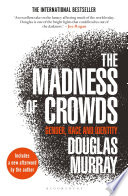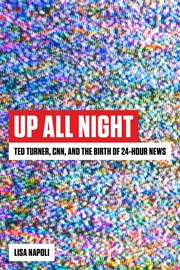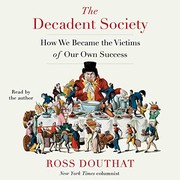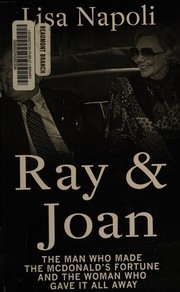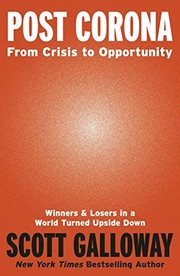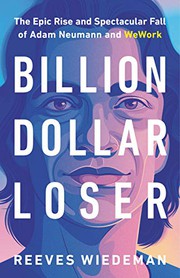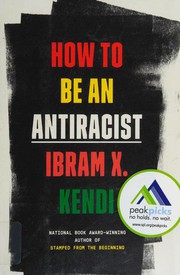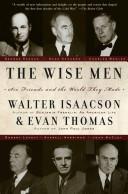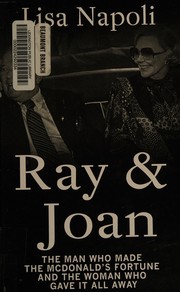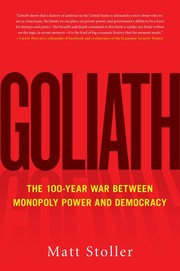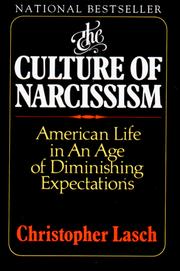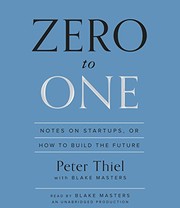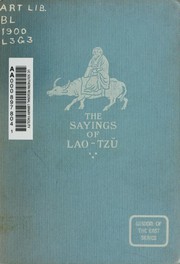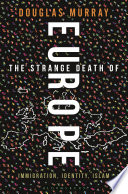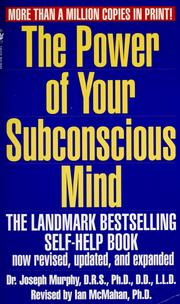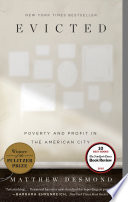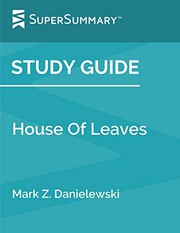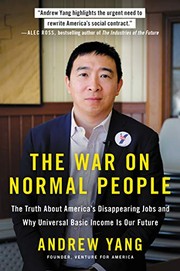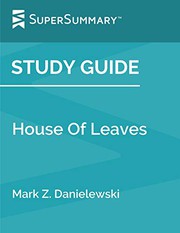Podcast: The Realignment

The United States is in the midst of a dramatic political realignment with shifting views on national security, economics, technology, and the role of government in our lives. Saagar Enjeti and Marshall Kosloff explore this with thinkers, policymakers, and more.
71 episodes processed, 24 books extracted
Podcast Playlist: View on YouTube
Books Mentioned Most Often
The Madness of Crowds
Buy The Madness of Crowds by Douglas Murray on Amazon
Mentioned 13 times
I'm very keen that people realize the two things: first of all, I completely agree with you, and it’s very important to state—I stated at the opening of The Madness of Crowds—every single one of the rights issues I'm talking about starts not only in a good place but an exceptionally admirable place.
In this segment, guest Douglas Murray emphasizes that in the opening of his book 'The Madness of Crowds,' he highlights that all the rights issues he discusses originate from commendable beginnings. This remark is made in the context of a broader conversation regarding cultural conflicts.
Now, here's one way of doing that—I say in The Madness of Crowds, what if we could agree on a certain definition and, indeed, objective?
In the interview, guest Douglas Murray refers to his book, 'The Madness of Crowds', while discussing the idea of reaching a consensus on certain definitions.
And it's certainly fair to say that elements of the left were more vocal, more involved in each of the rights movements that I'm talking about in The Madness of Crowds than they were on the right.
In this segment, guest Douglas Murray discusses the themes covered in his book 'The Madness of Crowds,' particularly highlighting how elements of the left have been more vocal and engaged in various rights movements compared to the right.
And he, in his extraordinary perception on this, is something I pick up and run with in The Madness of Crowds where I say the civil rights fight in the 1960s was a real dragon slaying.
In this segment, guest Douglas Murray refers to his book 'The Madness of Crowds', where he explores the civil rights fight of the 1960s, likening it to a dragon-slaying adventure, inspired by a metaphor from another book, 'The Liberal Mind'.
And one of the oddities of the situation in America in particular is—and I say this in The Madness of Crowds—the extent to which, after these battles are won, the wannabe dragon slayers who would have loved to have been with them with Martin Luther King in the march on Washington, who would have loved to have been the Stonewalling, who would have loved to have been with the Suffragettes, find themselves weirdly arguing more vociferously, unpleasantly than the people who were fighting the real fights.
Guest Douglas Murray refers to his book, "The Madness of Crowds," while discussing the peculiarities of social justice activism in America.
I say this in The Madness of Crowds: to read a hugely celebrated black writer today like, like Toni Morrison is to read somebody who writes more angrily about America than James Baldwin did when there were many, many more things to be angry about.
In his book 'The Madness of Crowds', guest Douglas Murray addresses the contrasting emotional expressions of contemporary black writers compared to those from the civil rights era, highlighting that figures like Toni Morrison express a different kind of anger about America than writers such as James Baldwin faced during a time rife with greater injustices.
I would say this, first of all, by the way, I say in the gay chapter and I say in the trans chapter in The Madness of Crowds that the LGBT issue—I said this ahead of Dave Chappelle, I might add by the way—I said the LGBT bit of the alphabet doesn't add together.
In this segment, guest Douglas Murray talks about his insights regarding LGBTQ issues as discussed in his book, The Madness of Crowds.
And I explain in The Madness of Crowds why the trans issue is quite unlike all the other bits of LGBT.
In this segment, guest Douglas Murray discusses his book, 'The Madness of Crowds,' explaining why he believes the transgender issue is distinct from other aspects of LGBT.
That doesn't mean that we shouldn't treat trans people with respect, but the trans question—and I say this in the last chapter of The Madness of Crowds—is a very little-known question.
In the podcast, guest Douglas Murray discusses the transgender issue, referencing how it is addressed in the last chapter of his book, `The Madness of Crowds`.
The intersectionalists, who I critique in The Madness of Crowds, have always had a problem with class.
In this segment, guest Douglas Murray discusses his critique of intersectionalists as presented in his book, The Madness of Crowds, highlighting their ongoing challenges with the concept of class.
One of the things that I say at one point in The Madness of Crowds is, if you play the intersectional game, including the representation game, on the terms of the intersectionalists, you actually may get yourself to a situation where all you've done is create a new hierarchy.
Guest Douglas Murray discusses a point he makes in 'The Madness of Crowds', suggesting that engaging with intersectionality on its own terms could lead to the formation of a new hierarchy.
By the way, a very quick example of that, if I may say this in The Madness of Crowds, is why we have the weird thing of people being thrown out of their character group if they think the wrong things.
Guest Douglas Murray explicitly refers to a point he made in The Madness of Crowds, highlighting that individuals are often ostracized from their social groups for holding different political beliefs.
Madness of Crowds, I recommend everybody go out there and buy the book.
The host encourages listeners to purchase Douglas Murray's book, `The Madness of Crowds`, emphasizing its value and relevance.
Up All Night
Buy Up All Night by Lisa Napoli on Amazon
Mentioned 3 times
So we are here to talk about your book, Up All Night: Ted Turner, CNN, and the Birth of 24-Hour News. But a good place to start would be your thoughts on the future.
The podcast hosts introduce Lisa Napoli and discuss her book, "Up All Night: Ted Turner, CNN, and the Birth of 24-Hour News," which explores the impact of Ted Turner on the creation of 24-hour news coverage.
It almost didn't happen, which is a big part of the story that I write in the book, that it almost didn't happen. So many things went wrong; finally, it got up.
In this segment, Lisa Napoli discusses her book 'Up All Night: Ted Turner, CNN, and the Birth of 24-Hour News', highlighting the challenges faced during CNN's inception.
Lisa, this has been such an incredible episode; I want to make sure that people know about the book 'Up All Night.' They can find it on Amazon.
In the conclusion of the episode, the host highlights the book 'Up All Night' by Lisa Napoli, encouraging listeners to check it out on Amazon.
The Decadent Society
Buy The Decadent Society by Ross Gregory Douthat on Amazon
Mentioned 3 times
Yeah, Ross, the last time we had you on, it was to discuss your book. It was, I mean, obviously the Deccan Society, it's an incredible book.
The podcast host mentions that their guest, Ross Douthat, was previously on the show to discuss his book. They reference the title as 'Deccan Society', which appears to be a transcription error of the actual title, 'The Decadent Society', highlighting its significance and quality.
Yeah, Ross, the last time we had you on, it was to discuss your book. It was, I mean, obviously the Deccan Society, it's an incredible book.
The podcast host references their guest, Ross Douthat's book, calling it an incredible read. They mention the title as 'the Deccan Society', which appears to be a transcription error for the actual title 'The Decadent Society', following a prior mention of the book earlier in the transcript.
Oh, if everybody checks out Ross's book, The Decadent Society, and his podcast, The Argument, where Jane will soon be joining him, it's absolutely excellent and will continue to be so. Thank you, guys; have a good one.
In this segment, the host encourages listeners to check out Ross Douthat's book, 'The Decadent Society', along with his podcast, 'The Argument', highlighting the quality of both.
Ray & Joan
Buy Ray & Joan by Lisa Napoli on Amazon
Mentioned 2 times
Look, I wrote a book before this book about the creation of McDonald's. Well, it wasn't really about the creation of McDonald's, but it wound up being a lot about the creation of McDonald's.
Lisa Napoli discusses a book she authored that focuses on McDonald's, highlighting how certain inventions gain popularity through individuals and how this process can apply to other creative innovations.
This book was called 'Ray and Joan: The Man Who Made the McDonald's Fortune and the Woman Who Gave It All Away.' I couldn't sell the book when it was just about Joan because nobody, you know, as much as everybody loves women and women are so great, nobody would buy the book when it was just about Joan Kroc, who was the greatest under-recognized and most interesting philanthropist of her time.
Lisa Napoli discusses her book titled 'Ray and Joan: The Man Who Made the McDonald's Fortune and the Woman Who Gave It All Away' during the podcast episode. She elaborates on the challenges she faced in selling the book when it solely focused on Joan Kroc, emphasizing Joan's significant yet often overlooked contributions as a philanthropist.
Post Corona
Buy Post Corona by Scott Galloway on Amazon
Mentioned 2 times
Before we get into your book, Post Corona: From Crisis to Opportunity, which I really enjoyed, by the way, I want to mention that this was one of the books I read before the show—something that doesn't happen always, but it's a real testament to your work.
In this segment, the podcast host, Marshall, introduces guest Scott Galloway, emphasizing that he both read and enjoyed Galloway's book, 'Post Corona: From Crisis to Opportunity', prior to the recording. This comment serves as a strong endorsement of the book.
Thank you both; Marshall and I are big fans, so thank you very much, and everyone should go check out the book Post Corona. Thanks for having me, Tommy.
As the episode concludes, Scott Galloway expresses his gratitude to the hosts and encourages listeners to check out his book, 'Post Corona: From Crisis to Opportunity', highlighting its relevance.
Billion Dollar Loser
Buy Billion Dollar Loser by Reeves Wiedeman on Amazon
Mentioned 2 times
So Reeves, you've just authored 'Billion Dollar Loser', the epic rise and spectacular fall of Adam Neumann and WeWork.
In this episode, the host introduces guest Reeves Wiedeman, discussing his book 'Billion Dollar Loser', which chronicles the rise and fall of Adam Neumann and WeWork. This sets a pivotal context for the episode's themes.
The book is a narrative book, so I suggest everyone who purchases it just reads through that part.
The host emphasizes that the book is a narrative, encouraging listeners to buy it for deeper insight into the discussion. The book being referred to is 'Billion Dollar Loser', previously mentioned.
How to Be an Antiracist
Buy How to Be an Antiracist by Ibram X. Kendi, Cristina Lizarbe on Amazon
Mentioned 2 times
I would say right now, you could raise her taxes by 25% but as long as she could remain in good social standing in PTA, aka not being aligned with Trump, not being anti-Black Lives Matter, she could go to her book club and talk about white fragility and Ibrahim Kendi's anti-racism books.
In this segment, the host discusses a hypothetical suburban woman who would prefer to increase her taxes to maintain her social standing in groups like the PTA. The mention of Ibrahim Kendi's work serves to highlight the cultural significance and progressive ideals she can showcase in discussions at her book club.
He’s essentially said he desires to be a bridge to the future represented by figures like Pete Buttigieg and Kamala Harris, both of whom hold ideologies resembling an Ibrahim Kendi approach and will likely lack oversight from moderate voices.
The discussion revolves around how Biden is positioning himself as a bridge to the future with figures such as Buttigieg and Harris, whose progressive ideologies are influenced by Ibram X. Kendi's ideas. The hosts express concern that these views may lack oversight from more moderate voices.
Why We're Polarized
Buy Why We're Polarized by Ezra Klein on Amazon
Mentioned 1 time
Um, you know, uh, so like, uh, Ezra Klein's book, I don't know if you've seen why we're polarized, you might have read it. Yeah, you know, the one thing he emphasizes every actor in the system is sort of acting rationally.
In this segment, Richard refers to Ezra Klein's book 'Why We're Polarized' to emphasize the notion that political actors behave rationally within the current political system. This rational behavior contributes to the difficulty of breaking established patterns and cycles.
The wise men: Six friends and the world they made
Buy The wise men: Six friends and the world they made by Walter Isaacson, Evan Thomas on Amazon
Mentioned 1 time
He was smart enough to understand this is the guy I have to talk to, and not only did he talk to him during the day, but Walter Isaacson described in The Wise Men how at the end of every day, Truman would make his staff get in the car and drive over to Vandenberg’s townhouse and brief him on everything they had done that day.
Joe Scarborough references Walter Isaacson's book 'The Wise Men' while describing how President Truman would brief Senator Vandenberg at the end of each day to build consensus and bipartisan support after WWII. This illustrates Truman's political acumen.
Ray & Joan
Buy Ray & Joan by Lisa Napoli on Amazon
Mentioned 1 time
So yeah, but please look for 'Ray and Joan' because I love that book and I'm so proud of that book. Well, I'm going to pick it up.
In this segment, Lisa Napoli enthusiastically encourages listeners to seek out her book 'Ray and Joan', expressing her pride in it and her love for its content.
Scoop Evelyn Waugh
Buy Scoop Evelyn Waugh by Evelyn Waugh on Amazon
Mentioned 1 time
Which is the building that Evelyn Waugh describes in 'Scoop' with Lord Copper.
Andrew Sullivan reflects on his early days in journalism, comparing the Daily Telegraph building to the setting described in Evelyn Waugh's novel 'Scoop'. This comment is part of a broader discussion on the evolution of media, highlighting the dramatic changes in journalism from traditional typesetting to modern platforms like Substack.
Goliath
Buy Goliath by Matt Stoller on Amazon
Mentioned 1 time
This came from my writing my book, Goliath, which was on the problem of monopoly power.
Matt Stoller, a guest on The Realignment podcast, discusses his book 'Goliath,' which explores the issue of monopoly power. He shares that the insights he expresses during the podcast stem from his writing process and how it shaped his views on power and governance.
The Culture of Narcissism
Buy The Culture of Narcissism by Christopher Lasch on Amazon
Mentioned 1 time
The political denomination or orientation is liberal, the psychological type as Lash talks about, it is narcissist.
In this segment, Anna Khachiyan discusses the concept of narcissism in political discourse, explicitly referencing 'Lash' to allude to the work of Christopher Lasch, who provides critical insights relevant to understanding contemporary events.
Elements
Buy Elements by Euclid on Amazon
Mentioned 1 time
It reminds me of basically every story from Genesis not to get biblical here but there's the story of when Moses goes up Mount Sinai to get the Ten Commandments. He tells everyone, 'Okay, I'm gonna go talk to God, I'll be right back', and they're like, 'Cool, great.'
In this segment, Jane Coaston draws an analogy from the Book of Genesis to illustrate how people often forget things quickly, referencing the story of Moses receiving the Ten Commandments.
Aeneis
Buy Aeneis by Publius Vergilius Maro on Amazon
Mentioned 1 time
Yeah, I think that's one that I absolutely is important, and this kind of brings us to our final section here, which is that one of the most important books I think for Marshall and I was Michael Lind's 'New Class War,' which we've talked a lot about here on the podcast, and he makes a point you know, in terms of the cultural politics that there really is no winning.
In this segment, Saagar discusses the significance of Michael Lind's book 'New Class War,' highlighting it as a crucial text that he and Marshall have frequently referenced throughout the podcast. They are about to delve into the topic of cultural politics, underscoring key points made in the book.
Zero to One
Buy Zero to One by Peter A. Thiel, Blake Masters on Amazon
Mentioned 1 time
I've been inspired by Peter Thiel's vision that we have too much innovation in the world of bits but not enough in the world of atoms, in 'rust out' that refers to this age of decadence. It seems that one of the reasons many boomers and others struggle to think critically about today’s politics is that we haven't lived in a moment similar to this since what? 1912, 13?
Eric Weinstein draws inspiration from Peter Thiel's ideas, likely from his book 'Zero to One', highlighting a perceived imbalance in innovation between the digital realm ('bits') and the physical world ('atoms'). This sets the stage for discussing current political and societal issues.
The Sayings of Lao Tzü
Buy The Sayings of Lao Tzü by Laozi on Amazon
Mentioned 1 time
I think a lot of what Michael Lind discusses in his book speaks to this.
The host points out that the ideas presented in Michael Lind's book are pertinent to their conversation regarding the shortcomings of populism.
The Strange Death of Europe
Buy The Strange Death of Europe by Douglas Murray on Amazon
Mentioned 1 time
He wrote The Strange Death of Europe back in 2017 about immigration.
The host mentions that Douglas Murray wrote the book 'The Strange Death of Europe' in 2017, which discusses the topic of immigration. This context is part of the introduction of Douglas Murray as a guest on the podcast.
The Power of Your Subconscious Mind
Buy The Power of Your Subconscious Mind by Joseph Murphy on Amazon
Mentioned 1 time
So that was right when you guys released your book, you were sort of in the middle of Bernie doing really well, there was no pandemic, so it's been a while.
The hosts reference the release of a book by Krystal Ball, highlighting its timing with Bernie Sanders' success in the primaries and a pre-pandemic political context. The specific title of the book isn't provided.
Evicted
Buy Evicted by Matthew Desmond on Amazon
Mentioned 1 time
A lot of those who read Matthew Desmond's book, Evicted, think it's about bad landlords in Milwaukee—it’s a great book—but it’s really about Milwaukee. The particular circumstances there incentivize landlords to behave in such a manner.
In this segment, Matt Yglesias discusses the book 'Evicted' by Matthew Desmond. He highlights how many readers incorrectly believe it focuses solely on the issue of bad landlords in Milwaukee. Instead, Yglesias emphasizes that the book's central theme revolves around the unique circumstances in Milwaukee that drive landlord behavior.
Study Guide
Buy Study Guide by SuperSummary on Amazon
Mentioned 1 time
By the way, just to say, Robin DiAngelo wrote the best-selling book 'White Fragility,' and Ibrahim Kendi wrote 'Stamped from the Beginning' and 'How to Be an Anti-Racist.' So these are the biggest speakers, if you go to Barnes and Noble, if it's open, they’re who you're going to see.
During a discussion about racism and racial bias in the US, Marshall highlights the book "Stamped from the Beginning" by Ibrahim Kendi, presenting it as one of the influential works in the current discourse on racism.
The war on normal people
Buy The war on normal people by Andrew Yang on Amazon
Mentioned 1 time
You wrote your book before you ran for your candidacy, but how many years before that did you kind of see the Fourth Industrial Revolution kind of happening before your eyes?
In this segment, Sagar, the host of 'The Realignment,' asks Andrew Yang about his book, 'The War on Normal People,' exploring how it relates to his political views and the impacts of the Fourth Industrial Revolution.
Study Guide
Buy Study Guide by SuperSummary on Amazon
Mentioned 1 time
So it’s like I just read his books; I kind of want to know what’s going on when you read the book; there are some things that get you really pissed off with racist white people.
Joe Lonsdale talks about having read books by Ibram X. Kendi, expressing a desire to understand the ideas presented in them and sharing his frustration regarding racism.
Πολιτικά (Politiká)
Buy Πολιτικά (Politiká) by Aristotle on Amazon
Mentioned 1 time
This is something I think a lot of people just get very, very wrong, is it like censorship is political; like human nature is like Aristotle means a political animal.
In discussing censorship and political power, Joe Lonsdale refers to Aristotle's concept of humans as a 'political animal', which likely draws from his work, Politics.
Latest Books Mentioned
Why We're Polarized
Buy Why We're Polarized by Ezra Klein on Amazon
In this segment, Richard refers to Ezra Klein's book 'Why We're Polarized' to emphasize the notion that political actors behave rationally within the current political system. This rational behavior contributes to the difficulty of breaking established patterns and cycles.
Um, you know, uh, so like, uh, Ezra Klein's book, I don't know if you've seen why we're polarized, you might have read it. Yeah, you know, the one thing he emphasizes every actor in the system is sort of acting rationally.
The wise men: Six friends and the world they made
Buy The wise men: Six friends and the world they made by Walter Isaacson, Evan Thomas on Amazon
Joe Scarborough references Walter Isaacson's book 'The Wise Men' while describing how President Truman would brief Senator Vandenberg at the end of each day to build consensus and bipartisan support after WWII. This illustrates Truman's political acumen.
He was smart enough to understand this is the guy I have to talk to, and not only did he talk to him during the day, but Walter Isaacson described in The Wise Men how at the end of every day, Truman would make his staff get in the car and drive over to Vandenberg’s townhouse and brief him on everything they had done that day.
Up All Night
Buy Up All Night by Lisa Napoli on Amazon
The podcast hosts introduce Lisa Napoli and discuss her book, "Up All Night: Ted Turner, CNN, and the Birth of 24-Hour News," which explores the impact of Ted Turner on the creation of 24-hour news coverage.
So we are here to talk about your book, Up All Night: Ted Turner, CNN, and the Birth of 24-Hour News. But a good place to start would be your thoughts on the future.
Ray & Joan
Buy Ray & Joan by Lisa Napoli on Amazon
Lisa Napoli discusses a book she authored that focuses on McDonald's, highlighting how certain inventions gain popularity through individuals and how this process can apply to other creative innovations.
Look, I wrote a book before this book about the creation of McDonald's. Well, it wasn't really about the creation of McDonald's, but it wound up being a lot about the creation of McDonald's.
Ray & Joan
Buy Ray & Joan by Lisa Napoli on Amazon
Lisa Napoli discusses her book titled 'Ray and Joan: The Man Who Made the McDonald's Fortune and the Woman Who Gave It All Away' during the podcast episode. She elaborates on the challenges she faced in selling the book when it solely focused on Joan Kroc, emphasizing Joan's significant yet often overlooked contributions as a philanthropist.
This book was called 'Ray and Joan: The Man Who Made the McDonald's Fortune and the Woman Who Gave It All Away.' I couldn't sell the book when it was just about Joan because nobody, you know, as much as everybody loves women and women are so great, nobody would buy the book when it was just about Joan Kroc, who was the greatest under-recognized and most interesting philanthropist of her time.
Up All Night
Buy Up All Night by Lisa Napoli on Amazon
In this segment, Lisa Napoli discusses her book 'Up All Night: Ted Turner, CNN, and the Birth of 24-Hour News', highlighting the challenges faced during CNN's inception.
It almost didn't happen, which is a big part of the story that I write in the book, that it almost didn't happen. So many things went wrong; finally, it got up.
Up All Night
Buy Up All Night by Lisa Napoli on Amazon
In the conclusion of the episode, the host highlights the book 'Up All Night' by Lisa Napoli, encouraging listeners to check it out on Amazon.
Lisa, this has been such an incredible episode; I want to make sure that people know about the book 'Up All Night.' They can find it on Amazon.
Ray & Joan
Buy Ray & Joan by Lisa Napoli on Amazon
In this segment, Lisa Napoli enthusiastically encourages listeners to seek out her book 'Ray and Joan', expressing her pride in it and her love for its content.
So yeah, but please look for 'Ray and Joan' because I love that book and I'm so proud of that book. Well, I'm going to pick it up.
Scoop Evelyn Waugh
Buy Scoop Evelyn Waugh by Evelyn Waugh on Amazon
Andrew Sullivan reflects on his early days in journalism, comparing the Daily Telegraph building to the setting described in Evelyn Waugh's novel 'Scoop'. This comment is part of a broader discussion on the evolution of media, highlighting the dramatic changes in journalism from traditional typesetting to modern platforms like Substack.
Which is the building that Evelyn Waugh describes in 'Scoop' with Lord Copper.
Post Corona
Buy Post Corona by Scott Galloway on Amazon
In this segment, the podcast host, Marshall, introduces guest Scott Galloway, emphasizing that he both read and enjoyed Galloway's book, 'Post Corona: From Crisis to Opportunity', prior to the recording. This comment serves as a strong endorsement of the book.
Before we get into your book, Post Corona: From Crisis to Opportunity, which I really enjoyed, by the way, I want to mention that this was one of the books I read before the show—something that doesn't happen always, but it's a real testament to your work.
Post Corona
Buy Post Corona by Scott Galloway on Amazon
As the episode concludes, Scott Galloway expresses his gratitude to the hosts and encourages listeners to check out his book, 'Post Corona: From Crisis to Opportunity', highlighting its relevance.
Thank you both; Marshall and I are big fans, so thank you very much, and everyone should go check out the book Post Corona. Thanks for having me, Tommy.
Goliath
Buy Goliath by Matt Stoller on Amazon
Matt Stoller, a guest on The Realignment podcast, discusses his book 'Goliath,' which explores the issue of monopoly power. He shares that the insights he expresses during the podcast stem from his writing process and how it shaped his views on power and governance.
This came from my writing my book, Goliath, which was on the problem of monopoly power.
The Culture of Narcissism
Buy The Culture of Narcissism by Christopher Lasch on Amazon
In this segment, Anna Khachiyan discusses the concept of narcissism in political discourse, explicitly referencing 'Lash' to allude to the work of Christopher Lasch, who provides critical insights relevant to understanding contemporary events.
The political denomination or orientation is liberal, the psychological type as Lash talks about, it is narcissist.
Elements
Buy Elements by Euclid on Amazon
In this segment, Jane Coaston draws an analogy from the Book of Genesis to illustrate how people often forget things quickly, referencing the story of Moses receiving the Ten Commandments.
It reminds me of basically every story from Genesis not to get biblical here but there's the story of when Moses goes up Mount Sinai to get the Ten Commandments. He tells everyone, 'Okay, I'm gonna go talk to God, I'll be right back', and they're like, 'Cool, great.'
The Decadent Society
Buy The Decadent Society by Ross Gregory Douthat on Amazon
The podcast host mentions that their guest, Ross Douthat, was previously on the show to discuss his book. They reference the title as 'Deccan Society', which appears to be a transcription error of the actual title, 'The Decadent Society', highlighting its significance and quality.
Yeah, Ross, the last time we had you on, it was to discuss your book. It was, I mean, obviously the Deccan Society, it's an incredible book.
The Decadent Society
Buy The Decadent Society by Ross Gregory Douthat on Amazon
The podcast host references their guest, Ross Douthat's book, calling it an incredible read. They mention the title as 'the Deccan Society', which appears to be a transcription error for the actual title 'The Decadent Society', following a prior mention of the book earlier in the transcript.
Yeah, Ross, the last time we had you on, it was to discuss your book. It was, I mean, obviously the Deccan Society, it's an incredible book.
The Decadent Society
Buy The Decadent Society by Ross Gregory Douthat on Amazon
In this segment, the host encourages listeners to check out Ross Douthat's book, 'The Decadent Society', along with his podcast, 'The Argument', highlighting the quality of both.
Oh, if everybody checks out Ross's book, The Decadent Society, and his podcast, The Argument, where Jane will soon be joining him, it's absolutely excellent and will continue to be so. Thank you, guys; have a good one.
Aeneis
Buy Aeneis by Publius Vergilius Maro on Amazon
In this segment, Saagar discusses the significance of Michael Lind's book 'New Class War,' highlighting it as a crucial text that he and Marshall have frequently referenced throughout the podcast. They are about to delve into the topic of cultural politics, underscoring key points made in the book.
Yeah, I think that's one that I absolutely is important, and this kind of brings us to our final section here, which is that one of the most important books I think for Marshall and I was Michael Lind's 'New Class War,' which we've talked a lot about here on the podcast, and he makes a point you know, in terms of the cultural politics that there really is no winning.
Zero to One
Buy Zero to One by Peter A. Thiel, Blake Masters on Amazon
Eric Weinstein draws inspiration from Peter Thiel's ideas, likely from his book 'Zero to One', highlighting a perceived imbalance in innovation between the digital realm ('bits') and the physical world ('atoms'). This sets the stage for discussing current political and societal issues.
I've been inspired by Peter Thiel's vision that we have too much innovation in the world of bits but not enough in the world of atoms, in 'rust out' that refers to this age of decadence. It seems that one of the reasons many boomers and others struggle to think critically about today’s politics is that we haven't lived in a moment similar to this since what? 1912, 13?
Billion Dollar Loser
Buy Billion Dollar Loser by Reeves Wiedeman on Amazon
In this episode, the host introduces guest Reeves Wiedeman, discussing his book 'Billion Dollar Loser', which chronicles the rise and fall of Adam Neumann and WeWork. This sets a pivotal context for the episode's themes.
So Reeves, you've just authored 'Billion Dollar Loser', the epic rise and spectacular fall of Adam Neumann and WeWork.
Billion Dollar Loser
Buy Billion Dollar Loser by Reeves Wiedeman on Amazon
The host emphasizes that the book is a narrative, encouraging listeners to buy it for deeper insight into the discussion. The book being referred to is 'Billion Dollar Loser', previously mentioned.
The book is a narrative book, so I suggest everyone who purchases it just reads through that part.
The Sayings of Lao Tzü
Buy The Sayings of Lao Tzü by Laozi on Amazon
The host points out that the ideas presented in Michael Lind's book are pertinent to their conversation regarding the shortcomings of populism.
I think a lot of what Michael Lind discusses in his book speaks to this.
The Strange Death of Europe
Buy The Strange Death of Europe by Douglas Murray on Amazon
The host mentions that Douglas Murray wrote the book 'The Strange Death of Europe' in 2017, which discusses the topic of immigration. This context is part of the introduction of Douglas Murray as a guest on the podcast.
He wrote The Strange Death of Europe back in 2017 about immigration.
The Madness of Crowds
Buy The Madness of Crowds by Douglas Murray on Amazon
In this segment, guest Douglas Murray emphasizes that in the opening of his book 'The Madness of Crowds,' he highlights that all the rights issues he discusses originate from commendable beginnings. This remark is made in the context of a broader conversation regarding cultural conflicts.
I'm very keen that people realize the two things: first of all, I completely agree with you, and it’s very important to state—I stated at the opening of The Madness of Crowds—every single one of the rights issues I'm talking about starts not only in a good place but an exceptionally admirable place.
The Madness of Crowds
Buy The Madness of Crowds by Douglas Murray on Amazon
In the interview, guest Douglas Murray refers to his book, 'The Madness of Crowds', while discussing the idea of reaching a consensus on certain definitions.
Now, here's one way of doing that—I say in The Madness of Crowds, what if we could agree on a certain definition and, indeed, objective?
The Madness of Crowds
Buy The Madness of Crowds by Douglas Murray on Amazon
In this segment, guest Douglas Murray discusses the themes covered in his book 'The Madness of Crowds,' particularly highlighting how elements of the left have been more vocal and engaged in various rights movements compared to the right.
And it's certainly fair to say that elements of the left were more vocal, more involved in each of the rights movements that I'm talking about in The Madness of Crowds than they were on the right.
The Madness of Crowds
Buy The Madness of Crowds by Douglas Murray on Amazon
In this segment, guest Douglas Murray refers to his book 'The Madness of Crowds', where he explores the civil rights fight of the 1960s, likening it to a dragon-slaying adventure, inspired by a metaphor from another book, 'The Liberal Mind'.
And he, in his extraordinary perception on this, is something I pick up and run with in The Madness of Crowds where I say the civil rights fight in the 1960s was a real dragon slaying.
The Madness of Crowds
Buy The Madness of Crowds by Douglas Murray on Amazon
Guest Douglas Murray refers to his book, "The Madness of Crowds," while discussing the peculiarities of social justice activism in America.
And one of the oddities of the situation in America in particular is—and I say this in The Madness of Crowds—the extent to which, after these battles are won, the wannabe dragon slayers who would have loved to have been with them with Martin Luther King in the march on Washington, who would have loved to have been the Stonewalling, who would have loved to have been with the Suffragettes, find themselves weirdly arguing more vociferously, unpleasantly than the people who were fighting the real fights.
The Madness of Crowds
Buy The Madness of Crowds by Douglas Murray on Amazon
In his book 'The Madness of Crowds', guest Douglas Murray addresses the contrasting emotional expressions of contemporary black writers compared to those from the civil rights era, highlighting that figures like Toni Morrison express a different kind of anger about America than writers such as James Baldwin faced during a time rife with greater injustices.
I say this in The Madness of Crowds: to read a hugely celebrated black writer today like, like Toni Morrison is to read somebody who writes more angrily about America than James Baldwin did when there were many, many more things to be angry about.
The Madness of Crowds
Buy The Madness of Crowds by Douglas Murray on Amazon
In this segment, guest Douglas Murray talks about his insights regarding LGBTQ issues as discussed in his book, The Madness of Crowds.
I would say this, first of all, by the way, I say in the gay chapter and I say in the trans chapter in The Madness of Crowds that the LGBT issue—I said this ahead of Dave Chappelle, I might add by the way—I said the LGBT bit of the alphabet doesn't add together.
The Madness of Crowds
Buy The Madness of Crowds by Douglas Murray on Amazon
In this segment, guest Douglas Murray discusses his book, 'The Madness of Crowds,' explaining why he believes the transgender issue is distinct from other aspects of LGBT.
And I explain in The Madness of Crowds why the trans issue is quite unlike all the other bits of LGBT.
The Madness of Crowds
Buy The Madness of Crowds by Douglas Murray on Amazon
In the podcast, guest Douglas Murray discusses the transgender issue, referencing how it is addressed in the last chapter of his book, `The Madness of Crowds`.
That doesn't mean that we shouldn't treat trans people with respect, but the trans question—and I say this in the last chapter of The Madness of Crowds—is a very little-known question.
The Madness of Crowds
Buy The Madness of Crowds by Douglas Murray on Amazon
In this segment, guest Douglas Murray discusses his critique of intersectionalists as presented in his book, The Madness of Crowds, highlighting their ongoing challenges with the concept of class.
The intersectionalists, who I critique in The Madness of Crowds, have always had a problem with class.
The Madness of Crowds
Buy The Madness of Crowds by Douglas Murray on Amazon
Guest Douglas Murray discusses a point he makes in 'The Madness of Crowds', suggesting that engaging with intersectionality on its own terms could lead to the formation of a new hierarchy.
One of the things that I say at one point in The Madness of Crowds is, if you play the intersectional game, including the representation game, on the terms of the intersectionalists, you actually may get yourself to a situation where all you've done is create a new hierarchy.
The Madness of Crowds
Buy The Madness of Crowds by Douglas Murray on Amazon
Guest Douglas Murray explicitly refers to a point he made in The Madness of Crowds, highlighting that individuals are often ostracized from their social groups for holding different political beliefs.
By the way, a very quick example of that, if I may say this in The Madness of Crowds, is why we have the weird thing of people being thrown out of their character group if they think the wrong things.
The Madness of Crowds
Buy The Madness of Crowds by Douglas Murray on Amazon
The host encourages listeners to purchase Douglas Murray's book, `The Madness of Crowds`, emphasizing its value and relevance.
Madness of Crowds, I recommend everybody go out there and buy the book.
The Power of Your Subconscious Mind
Buy The Power of Your Subconscious Mind by Joseph Murphy on Amazon
The hosts reference the release of a book by Krystal Ball, highlighting its timing with Bernie Sanders' success in the primaries and a pre-pandemic political context. The specific title of the book isn't provided.
So that was right when you guys released your book, you were sort of in the middle of Bernie doing really well, there was no pandemic, so it's been a while.
Evicted
Buy Evicted by Matthew Desmond on Amazon
In this segment, Matt Yglesias discusses the book 'Evicted' by Matthew Desmond. He highlights how many readers incorrectly believe it focuses solely on the issue of bad landlords in Milwaukee. Instead, Yglesias emphasizes that the book's central theme revolves around the unique circumstances in Milwaukee that drive landlord behavior.
A lot of those who read Matthew Desmond's book, Evicted, think it's about bad landlords in Milwaukee—it’s a great book—but it’s really about Milwaukee. The particular circumstances there incentivize landlords to behave in such a manner.
Study Guide
Buy Study Guide by SuperSummary on Amazon
During a discussion about racism and racial bias in the US, Marshall highlights the book "Stamped from the Beginning" by Ibrahim Kendi, presenting it as one of the influential works in the current discourse on racism.
By the way, just to say, Robin DiAngelo wrote the best-selling book 'White Fragility,' and Ibrahim Kendi wrote 'Stamped from the Beginning' and 'How to Be an Anti-Racist.' So these are the biggest speakers, if you go to Barnes and Noble, if it's open, they’re who you're going to see.
The war on normal people
Buy The war on normal people by Andrew Yang on Amazon
In this segment, Sagar, the host of 'The Realignment,' asks Andrew Yang about his book, 'The War on Normal People,' exploring how it relates to his political views and the impacts of the Fourth Industrial Revolution.
You wrote your book before you ran for your candidacy, but how many years before that did you kind of see the Fourth Industrial Revolution kind of happening before your eyes?
How to Be an Antiracist
Buy How to Be an Antiracist by Ibram X. Kendi, Cristina Lizarbe on Amazon
In this segment, the host discusses a hypothetical suburban woman who would prefer to increase her taxes to maintain her social standing in groups like the PTA. The mention of Ibrahim Kendi's work serves to highlight the cultural significance and progressive ideals she can showcase in discussions at her book club.
I would say right now, you could raise her taxes by 25% but as long as she could remain in good social standing in PTA, aka not being aligned with Trump, not being anti-Black Lives Matter, she could go to her book club and talk about white fragility and Ibrahim Kendi's anti-racism books.
How to Be an Antiracist
Buy How to Be an Antiracist by Ibram X. Kendi, Cristina Lizarbe on Amazon
The discussion revolves around how Biden is positioning himself as a bridge to the future with figures such as Buttigieg and Harris, whose progressive ideologies are influenced by Ibram X. Kendi's ideas. The hosts express concern that these views may lack oversight from more moderate voices.
He’s essentially said he desires to be a bridge to the future represented by figures like Pete Buttigieg and Kamala Harris, both of whom hold ideologies resembling an Ibrahim Kendi approach and will likely lack oversight from moderate voices.
Study Guide
Buy Study Guide by SuperSummary on Amazon
Joe Lonsdale talks about having read books by Ibram X. Kendi, expressing a desire to understand the ideas presented in them and sharing his frustration regarding racism.
So it’s like I just read his books; I kind of want to know what’s going on when you read the book; there are some things that get you really pissed off with racist white people.
Πολιτικά (Politiká)
Buy Πολιτικά (Politiká) by Aristotle on Amazon
In discussing censorship and political power, Joe Lonsdale refers to Aristotle's concept of humans as a 'political animal', which likely draws from his work, Politics.
This is something I think a lot of people just get very, very wrong, is it like censorship is political; like human nature is like Aristotle means a political animal.

